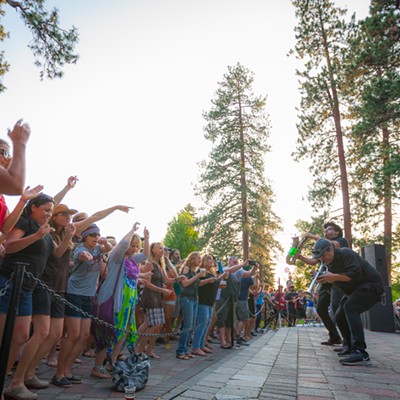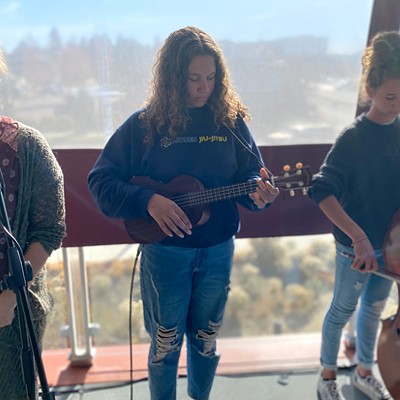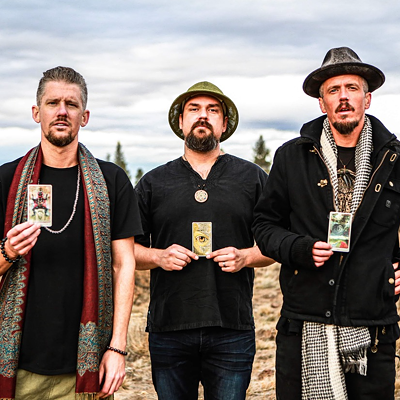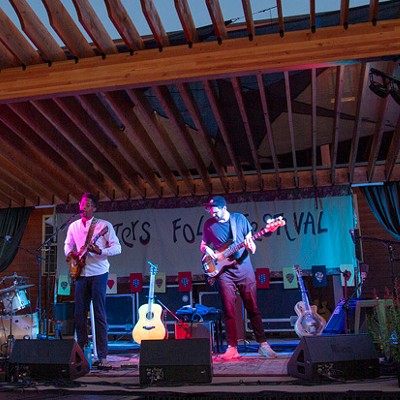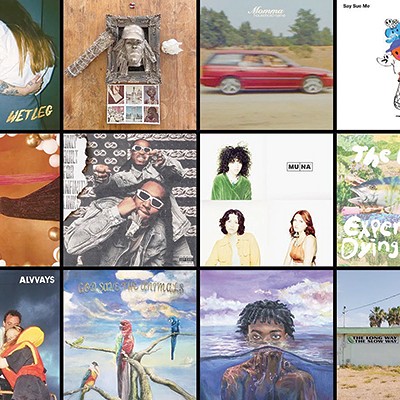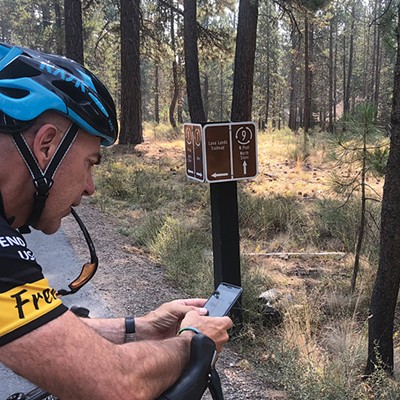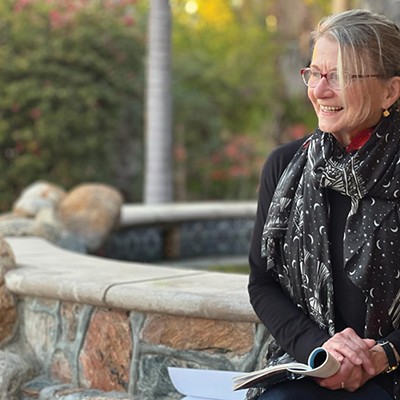It's been seven years since MOsley WOtta's last album, "Kinkonk." That's a big window for things to change, especially for a musician. The turns life take can either keep that window propped open for creation, or make you move in a different direction. You have to roll with the punches and jump those hurdles.

For MOsley WOtta, aka Jason Graham and his team, things have definitely changed. Graham has kids (who you might hear on the album), Ritual Systems producer Colten Tyler Williams moved his studio and engineer Rory Restani of Oxiliary moved from downtown Bend to Sisters, basically building a studio from scratch.
"In some ways it feels like, 'Aw, man we're past our due date,' but in other ways I'm like 'holy sh*t!' Not to be totally self-congratulatory, but like Rory didn't hire a bunch of folks to do remodeling, Rory learned how to do remodeling. Walls are up because Rory learned how to build walls." says Graham, who also was named Bend's first creative laureate last year. "That's some DIY sh*t!"
As we sat in the new Oxiliary space, this was the first time anyone other than Graham had heard the album from front to back in the proper order. It was a room filled with plenty of head nodding and smiles as the bass boomed under Graham's aptitude for clever wordplay. You could feel the heat and passion behind his lyrics – Graham was making statements to stick.
The new album, "What Comes After" opens up full throttle with "Athlete," in which Graham is lyrically sprinting through the track hard, almost as if he's diving after a loose ball. "Johnny Carlos, Tommie Smith, standing there with a balled-up fist," Graham raps, referencing the iconic moment during the 1968 Olympics, when the two athletes held up power fists. If you listen to the whole album, it's no secret why Graham mentioned these athletes. "What Comes After" centers a lot around the idea of fear, and how to stand tall over the lines drawn throughout society—something Carlos and Smith embodied. From the get-go Graham lays the groundwork for the rest of the album to get your wheels turning.
"Is the best thing to charge in and to start screaming with everybody else? Is the best thing to completely detach from it and act as if you're not part of the community?" says Graham as he questions those lines. "Most likely you're going to find yourself in between somewhere. There's a lot to do with our responses that happen in the real world based on our biological systems. There's a lot to do with the way we treat each other as groups versus one on one. That stuff freaks me out."
Graham tackles everything from racism, self-image and the backbones of America throughout the album. This content is especially powerful backed by the beats from Williams, who elevates the themes with a variety of haunting qualities and heavy bass, putting his own spin on the trap sound of today.
"I didn't want to go super all-in [with trap]. I really wanted the stuff to age well. Certain things don't age all that well, and you don't really know what will," says Williams. "If you really listen to it, it's got those trap-ish influences to it, but you listen to the ambience and the bass, it's tugging at your heart strings."
"What Comes After" is a question that might never be answered. Bad things are going to happen; so are good things. It's how we as humans react to one another in the face of good and bad events that most concerns Graham. The album's closing track is a perfect reflection of that feeling, with Graham resisting to give up his "white flag" and call it quits.
"It's talking about how bumpy evolution is. Sometimes it's steps backward as well as steps forward," reflects Graham. "It's not that I'm not like, fear-free, but finding how to speak your truth regardless of how scared you might be, knowing that that's actually more important—I suppose that sounds a bit self-righteous—but it's becoming a big part of what I didn't feel like I was allowed to do, growing up here. I felt like I had to play by a different set of rules."


